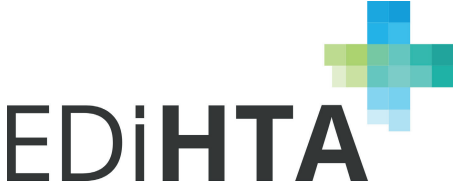The EU Health Technology Assessment (HTA) Regulation, which was applied as of 12 January 2025, is set to transform the European health policy landscape. This framework is designed to streamline the clinical assessment of health technologies across the EU and help Member States make more evidence-based and timely decisions on patient access to new medicines and medical devices. At the same time, the European Health Data Space (EHDS) Regulation, which will enter into force in 2025, will revolutionise the way health data is shared and used, empowering patients to take control of their own health data while facilitating its reuse for research, innovation, policy-making, and regulatory activities.
Under the HTA Regulation, Member States will work together to produce a single report on the clinical effectiveness and safety of medicines and selected medical devices. A key feature of the HTA Regulation is its focus on patient involvement. Patients will have direct opportunities to contribute to the joint work, ensuring that their experiences and needs are reflected. The Regulation also encourages voluntary cooperation between national HTA bodies, with the possibility of extending the joint work to digital health technologies (DHTs), which are currently excluded from its scope.
The EHDS complements the HTA Regulation by improving access to high-quality, standardised health data across Member States, which is crucial for comprehensive and consistent assessments. Through the EHDS, HTA bodies will gain access to extensive datasets from electronic health records, registries, and clinical databases. The EHDS is set to play a pivotal role in generating real-world evidence and capturing patient-reported outcomes. These data streams are essential for evaluating the long-term efficacy and safety of health technologies, especially digital innovations that rely on dynamic, real-world environments to demonstrate their utility. This is particularly important for digital health technologies, such as AI algorithms, wearables and mobile health applications, where existing inconsistencies in interoperability and evaluation methodologies make it difficult to assess their added value. By facilitating access to anonymised and pseudonymised health data, the EHDS will enable HTA bodies to monitor the added value of DHTs, ensuring that they deliver tangible benefits to patients.
At the intersection of the HTA Regulation and the EHDS is the EU-funded European Digital Health Technology Assessment (EDiHTA) project. EDiHTA builds on the context of the HTA Regulation to develop a specific framework for the assessment of digital health technologies, ensuring the involvement of all stakeholders, including patients. While the EHDS provides the data infrastructure, EDiHTA will establish specific criteria and methodologies for the assessment of digital health technologies, drawing on the real-world data and patient-reported outcomes.
In short, the HTA Regulation sets the stage, the EHDS provides the data, and the EDiHTA project can ensure that digital health technologies are assessed in a way that improves patient access and outcomes across Europe.
Prepared by the EDiHTA partners, European Patients Forum (EPF).
